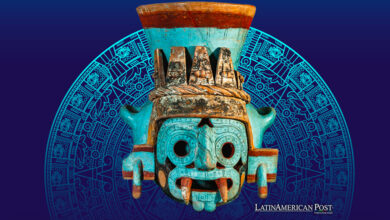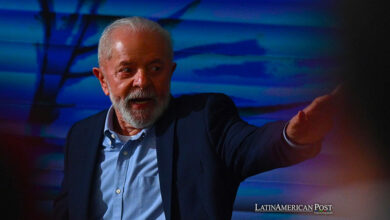Mexico, Canada and the U.S.: Does the passion for sports weigh more than politics?
In the midst of political tension between Mexico, Canada, and the U.S., the countries will have to unite to host the 2026 FIFA World Cup
The political climate between Canada, Mexico, and the U.S. has not been the most enjoyable in recent years. Donald Trump's intention to build a wall on the southern border and the tariffs imposed by Washington on the members of the Free Trade Agreement (FTA) have generated a clear division between the parties. However, it is often said that football unites everything, and the World Cup announced for 2026 could strengthen what has not been achieved with politics.
Leer en español: México, Canadá y EE. UU.: ¿Pesa más la pasión por el deporte que la política?
Mexico, U.S., and Canada will be the headquarters of the first World Cup in history in which three countries will host. There are still eight years left, and by now the current president of the United States will be outside the Oval Office, but it is already paradoxical that while the distance between these nations reaches high points, a sports event calls for unity.
Although it was the federations of these countries that united to get to host the World Cup in 2026, each government must be counted on to coordinate the realization of this. Therefore, when the current differences facing these administrations are observed, the idea of an alliance seems difficult to visualize.
On the one hand, there is the anti-immigrant discourse that Trump has been promoting since his candidacy and the proposal to build a wall on the U.S.-Mexico border. Added to this, the North American Free Trade Agreement (NAFTA) that was signed in 1994 with the purpose of opening the borders for the free passage of products and services among those linked, is on a tightrope, since Trump has accused Mexico and Canada on his Twitter account of engaging in unfair economic practices that affect the working population of the United States and has threatened to reform or eliminate it altogether.
When the passion for sport weighs more than politics
Historical facts have shown that political differences between countries can end or increase when sporting events of global relevance take place.
The 2018 Winter Olympics in South Korea is the most recent case that can be mentioned. In this event, North Korea sent a delegation and this act served to send a message of unity and to change the dynamics of aggressive dialogue between the parties.
A contrary case took place in 1980 when the Olympic Games in Moscow were boycotted by the United States as a form of protest for the Soviet invasion in Afghanistan. The same happened in the qualifiers for the 1974 World Cup in Germany, where the Russian team refused to play against Chile to speak out against the arrests and tortures carried out by the nascent government of Augusto Pinochet.
Donald Trump has been mainly responsible for the accelerated cooling of relations with his counterparts Enrique Peña Nieto and Justin Trudeau. However, although in 2026 these leaders will no longer be on the political stage, at least not as presidents, there are still three years of Trump (or maybe seven). This is enough time to continue seeing changes in the diplomatic scenario.
The 2026 World Cup is expected to leave profits above 11 million dollars, but this amount of money may not be divided equally. This is due to the fact that of the 80 parties that are expected to be carried out, 60 will be held in the U.S., one more reason to find differences in the middle of the union.
Latin American Post | Krishna Jaramillo
Translated from "México, Canadá y EE. UU.: ¿Pesa más la pasión por el deporte que la política?"






